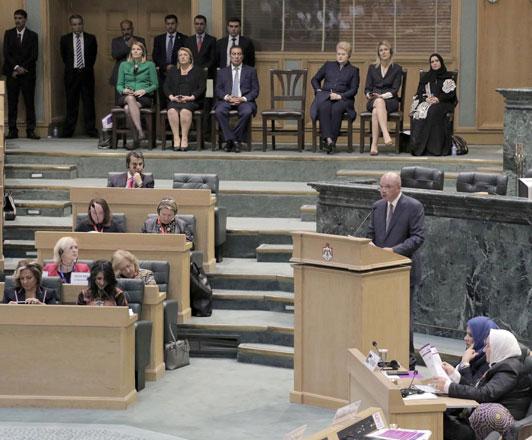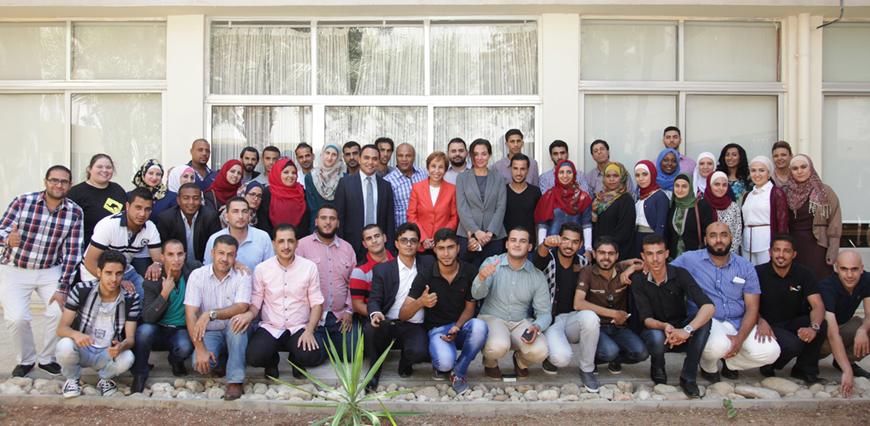You are here
Women leaders
Apr 08,2015 - Last updated at Apr 08,2015
As societies continue to evolve and become more modern, women in leadership position are becoming more visible and accepted in societies.
Almost universally women are indeed being increasingly recognised as being equal to men with respect to any task. The compensation, however, fails to reflect this equality.
In Jordan, in the last two decades, the management of public and private organisations has witnessed significant growth in the number of women leaders, both in their own businesses and in organisations that employ them.
In the society, however, there is still a residual resistance to accepting women as leaders. Such resistance, however, is receding gradually as more Jordanians become more educated and as women leaders successfully demonstrate their leadership capabilities.
The government supports women’s quest for leadership positions and for equal treatment. This support is advantageous to women; the disadvantage is that often women in leadership position come from outside, depriving other women in the organisation of the opportunity to observe and learn how women leaders evolve to become leaders.
Despite notable advances made by Jordanian and other Middle Eastern women in leadership position, these women still have obstacles they must strive to overcome.
One is that women’s leaders in the Middle East face approximately twice the challenges that Western women’s leaders face in comparable roles.
Family responsibilities act against Middle Eastern women’s success in leadership positions. This seems to be the biggest challenge facing women’s leaders.
As leaders in their fields, Middle Eastern women rely on family support for success. This support is critical for their success. Without this support, they could fail as leaders.
Despite their successes, women leaders are not very many in the corporate sector in the Middle East.
Women leaders are mostly found in the education and social sectors.
The region’s corporate and government sectors need to develop and implement many more programmes that monitor and facilitate women’s evolution to leaders.
Mohammad Obeidat,
Amman
Related Articles
AMMAN — Deputising for His Majesty King Abdullah, Senate President Faisal Fayez on Wednesday inaugurated the Women in Parliaments Global For
TUNIS — Arab women activists and feminists meeting in Tunis agreed that engaging the younger generation in women’s causes is of extreme impo
AMMAN — HRH Princess Basma on Saturday said young Jordanians are brimming with energy that should be tapped to achieve better progress in th


















